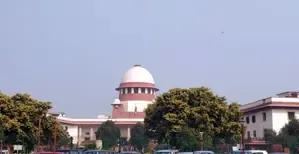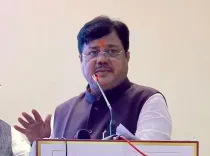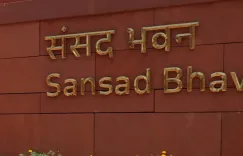Has the SC intervened after a prolonged delay in Jharkhand HC's verdict for 10 convicts?

Synopsis
Key Takeaways
- The Supreme Court has intervened in a case involving a significant delay in judgment delivery.
- The convicts allege that their constitutional rights have been violated.
- The case highlights the need for reforms in the judicial system.
- Legal representatives stress the psychological impact of prolonged waiting periods on convicts.
- The situation raises questions about the efficiency of the legal process in India.
New Delhi/Ranchi, July 14 (NationPress) The Supreme Court issued a notice to the Jharkhand High Court on Monday in response to a petition from 10 convicts, including six facing the death penalty, who claimed an excessive delay in the delivery of their judgment.
The petitioners approached the Jharkhand High Court between 2018 and 2019 to contest their convictions from a lower court. Although the hearings wrapped up in 2022-23, the High Court has not yet rendered its decision, prompting the convicts to seek intervention from the apex court.
Of the 10 petitioners, six received death sentences, while the other four were sentenced to life imprisonment. Nine of them are currently incarcerated at Birsa Munda Central Jail in Hotwar, Ranchi, and one has recently been released on bail from Dumka jail.
A bench comprised of Justice Suryakant and Justice Joymalya Bagchi remarked that the same judge reserved judgment across all these cases, raising concerns regarding the lengthy delay.
Advocate Fauzia Shakil, representing the petitioners, argued that deferring a verdict for years after the hearings violates Article 21 of the Constitution, which guarantees the right to life and personal liberty, including the right to speedy justice.
Shakil emphasized the psychological distress endured by the convicts due to the delay, particularly those awaiting execution.
She referenced the Supreme Court’s decision in HPA International vs Bhagwandas, where the court criticized the indefinite postponement of judgments.
The petition also mentioned the Jharkhand High Court Rules (2001), which stipulate that judgments must be issued within six weeks following the conclusion of arguments.
Additionally, citing earlier Supreme Court rulings regarding sentence suspension, the advocate pointed out that convicts who have already completed eight years of actual sentence typically qualify for bail.





